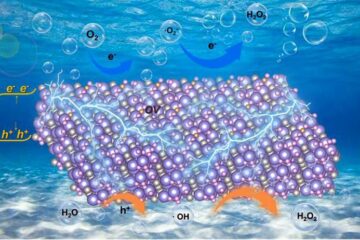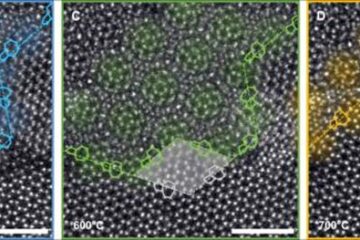Successful first test of high speed ‘penetrator’

A team led by the University College London (UCL) test-fired the projectiles in Wales, recording a peak of 20,000 gee upon impact (where humans can survive up to 10 gee). Penetrators, which can carry data-collecting systems and sensors, are being developed as an alternative to manned space flight for the future exploration of moons in our solar system.
The team, led by Professor Alan Smith from UCL’s Mullard Space Science Laboratory, the University of Surrey, Birkbeck College, Imperial College, the Open University and QinetiQ ran the first three test firings of the high speed penetrators at QinetiQ’s long test track in Pendine, South Wales in May 2008. The projectiles were secured to a rocket sledge and fired along a rail track.
The penetrators, which contained a data- and sample-collecting system, a variety of sensors, accelerometers, a seismometer and a mass spectrometer (for analysis) hit a sand target at around 700 miles per hour. The electronics remained fully operational during impact, recording the deceleration in minute detail which peaked at about 20,000 gee (20,000 times the acceleration due to gravity, where humans can only survive around 10 gee).
Penetrator technology is being developed for future space exploration, to pierce the surface of planetary bodies such as our moon and the icy moons of Jupiter and Saturn. Penetrators offer a low cost approach to planetary exploration, but the enormous impact forces have meant that scientists have so far been reluctant to trust them.
Professor Smith said: “Prior to this trial, we had to rely on computer modelling and analysis. As far as we can tell the trial has been enormously successful, with all aspects of the electronics working correctly during and after the impact. I congratulate the team on this really impressive achievement – to get everything right first time is wonderful, and a tribute to British technology and innovation.”
The impact trial is part of a series of technical developments and studies in preparation for future planetary space missions. These include the proposed UK MoonLITE mission to the Moon which is hoped to be launched in 2013, and possible missions to moons of the outer planets – Europa, Ganymede, Enceladous and Titan. The trials were funded by the Science and Technology Facilities Council as part of MSSL’s Rolling Grant.
Professor Smith leads the UK penetrator consortium which is a grouping of British universities (UCL, University of Surrey, Birkbeck College, Imperial College, Leicester University and Open University) and UK industries (Astrium, QinetiQ and Surrey Satellite Technology Ltd).
Media Contact
More Information:
http://www.surrey.ac.ukAll latest news from the category: Physics and Astronomy
This area deals with the fundamental laws and building blocks of nature and how they interact, the properties and the behavior of matter, and research into space and time and their structures.
innovations-report provides in-depth reports and articles on subjects such as astrophysics, laser technologies, nuclear, quantum, particle and solid-state physics, nanotechnologies, planetary research and findings (Mars, Venus) and developments related to the Hubble Telescope.
Newest articles

How 3D printers can give robots a soft touch
Soft skin coverings and touch sensors have emerged as a promising feature for robots that are both safer and more intuitive for human interaction, but they are expensive and difficult…

Oxygen vacancies mediated ultrathin Bi4O5Br2 nanosheets
… as efficient piezocatalyst for synthesis of H2O2 from pure water. As an important chemical raw material, hydrogen peroxide (H2O2) is widely applied in various aspects of industry and life….

Atom-by-atom: Imaging structural transformations in 2D materials
Silicon-based electronics are approaching their physical limitations and new materials are needed to keep up with current technological demands. Two-dimensional (2D) materials have a rich array of properties, including superconductivity…





















